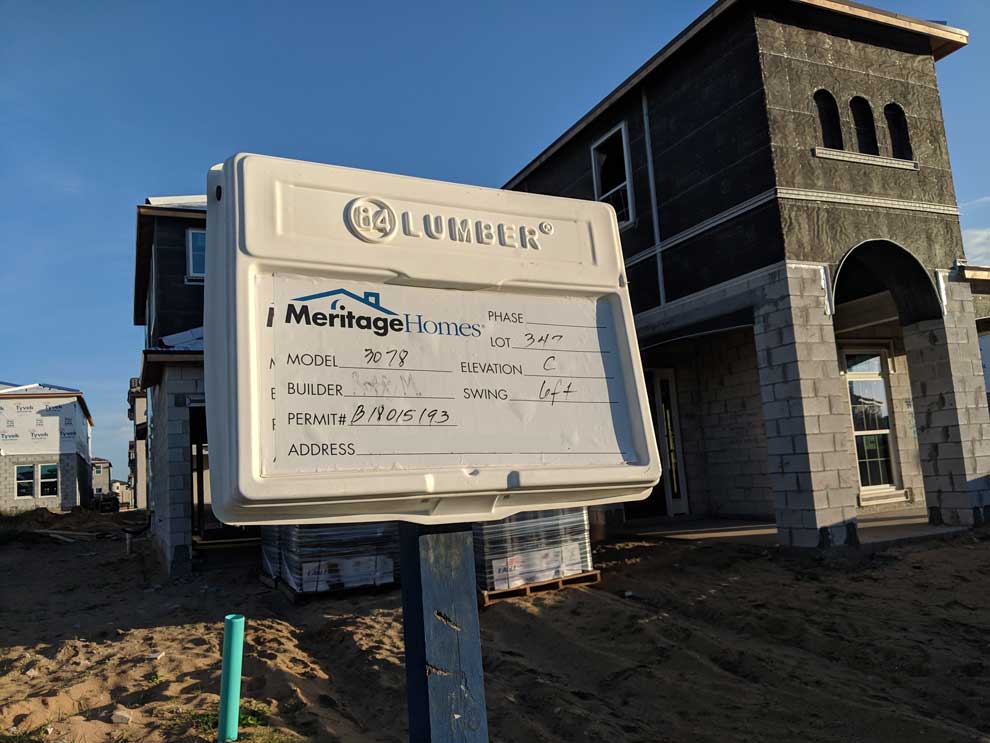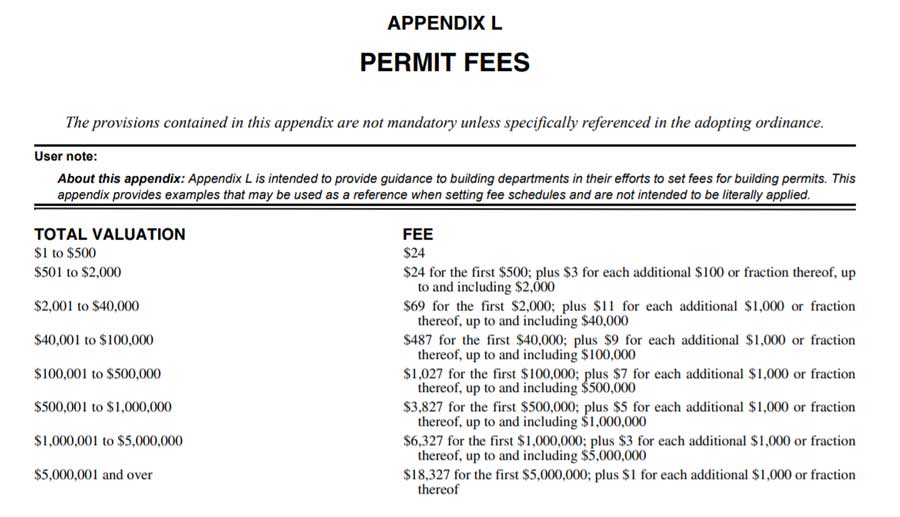When I started my garage renovation, getting a building permit was the last thing on my mind.
But after talking with a neighbor about some of his projects, he mentioned needing to pull a permit.
This got me thinking…when do you need a permit to remodel a garage?
The answers are harder to find than you’d expect.
Building permits ensure that the construction work meets a basic level of structural, electrical and plumbing safety standards. Failing to get permits and inspections is one of the biggest mistakes you can make with your garage remodel.

If you hire a garage renovation company, they’ll typically pull building permits for you. Otherwise, it’s your responsibility as the homeowner to get permits for your remodel.
When Do You Need a Permit to Remodel a Garage?
There’s a lot of general advice on the Internet. It’s usually from random people in forums that may be giving you the wrong information.
So I did some research, and this is what I found out.
In general, you’ll need a permit if you want to do any of the following:
- Structural changes
- Plumbing work
- Electrical work
- Adding new structures to your property (sheds, garages, swimming pools, etc.)
- Heating, Ventilation, and Air Conditioning (HVAC) work
- Replacing windows or garage doors
Some things are usually exempt from needing a permit:
- Painting
- Adding a ceiling fan
- Repairing your driveway or patio
- Replacing cabinets or countertops
- Replacing carpeting or adding hardwood floors
These lists aren’t exhaustive, but they should give you an idea of what will require building permits.
As much as I’d like a “one size fits all” answer, there isn’t one in this case. It’ll differ from town to town. I recommend checking with your local municipality’s building permit office before you start any work on your house.
Depending on where you live, you may only need a permit if you’re doing major structural work or adding electrical or plumbing to your garage. On the other hand, you may need a building permit for anything over a specific dollar figure.
Let’s cover some specific garage renovation projects in more detail:
In most cities, yes.
Most states leave the regulations up to the individual cities. However, most major cities require a permit before replacing your garage door.
In some states like Florida, the state goes a bit further. Because of the risk of hurricane damage to your garage door, they want to ensure that any modification or replacement of “impact-resistant doors” is up to code to keep you and your family safe.
It’s worth noting that you don’t usually need a permit if you’re just repairing your garage door.
Usually, yes. Replacing an entire garage floor usually involves grading the soil underneath, which may interfere with drainage. This is why it’s often more cost-effective to repair your garage floor rather than replace it.
However, you won’t need to pull a permit to install the best garage floor coating over existing concrete.
This is tricky, so checking with your local building permit office is crucial. Depending on the construction of your garage, you may not need a permit.
Of course, making any structural changes to your garage walls will require a permit. But if you have exposed wall studs in your garage and want to add drywall, you may not need one.
Similar to drywall, it all depends on what type of insulation you’re adding. Simply adding insulation to your garage walls doesn’t typically require pulling a permit.
However, if you make structural changes to your garage walls, you probably will require a permit.
Even if you’re simply adding a toilet to your garage, you will definitely need to pull a permit.
According to Fine Homebuilding, a good rule of thumb is that any new plumbing pipes you need to install will require a permit.
With water damage making up a large portion of insurance claims, your homeowner’s insurance company will want to ensure that the addition is done correctly.
Like replacing your garage door above, you won’t need a permit if you only want to replace a broken toilet or garage utility sink.
Definitely!
Any living space needs to comply with regulations for ventilation, heating\cooling, and fire safety regulations, so it checks all of the boxes we just covered.
However, since you’re converting your garage into living space, there are other requirements as well.
For example, one quick way to tell that a converted garage is NOT up to code is if you have to step down into the room when coming from the main house. FEMA (Federal Emergency Management Agency) directives require that the concrete slab be raised to help prevent flooding (pdf source).
Because there are so many aspects to a garage conversion, this will be one of the most expensive permits.
Custom-built garages are common with people with enough land to put them on. In general, you’ll need a building permit if you want to build a garage.
Because you’re building an entirely new structure, expect to have to jump through some additional hoops. You may need to provide construction plans before you’re able to apply for a building permit.
If you need additional parking spaces but want to avoid the permit process, building a carport may be the way to go.
While simple driveway repair probably doesn’t need a permit, you’ll definitely need a permit to replace your driveway. This includes adding a heated driveway system as well.
Replacing a driveway is a massive undertaking, usually involving several different sub-contractors. Your local planning commission will want to know that the job has been done properly.
How Much Do Building Permits Cost?
The cost of a building permit varies depending on where you live and what type of work is being done.
Simple permits can cost as little as around $25, and HomeAdvisor.com lists the national average at just over $1000. However, that covers all building permits, both big and small.
My city uses a “cost of renovation” calculation for determining the building permit’s cost. You can see it based on the International Residential Code (IRC) below.

For smaller jobs, the fee is $24, which covers renovations up to a total cost of $500. The permit fee increases to as much as $18K for half a million-dollar renovation expenses.
Oh…the custom garage I could build with $500K. :)
The critical point is that building permits are relatively inexpensive relative to the cost of building your dream garage.
They’re cheap enough so that homeowners will pay the permit fees and still have enough money to do the renovation.
Remember, the building permit is designed to give the homeowner the piece of mind that any work on the house has been done safely and up to code.
How Long are Permits Valid?
It usually takes 5-10 business days for the permit application process. Most building permits are valid for six months (180 days) from when they’re issued.
That doesn’t mean that the work has to be completed in that time, but the city wants to confirm that the work is progressing.
That usually means an inspection.
At least in my municipality, you’ve got 180 days from pulling the building permit to schedule an inspection. The type of inspection depends on the kind of work being done.
For example, you may need an electrical inspection when adding new outlets and a structural inspection when adding a new wall.
Once you pass the inspection, if more work is needed, you’ve usually got an additional 180 days to complete it.
Penalties For Renovations Without a Permit
Building permits are a matter of public record.
That means anyone can pull a building permit by typing an address into a website or making a quick phone call. A building inspector looking at another house in your neighborhood or even a nosy neighbor can tip the city off that you’ve done work without a permit.
More importantly, building permits put the responsibility and liability for the work on the person who pulls the permit. If no permit is pulled, that liability shifts to the homeowner – even if you’ve hired someone else to do the work for you.
Homeowners are often in the dark about what permits are required for the work they want done and who’s responsible for obtaining them. Short answer: you are.
Jim Cory, Proremodeler.com,
That’s why I always recommend giving your local building office a quick phone call or email to find out.
They’re there to help make sure you’ve got everything you need. The people I spoke to at my office were super-helpful and even gave me some quick tips on making the process easier.
Here are some scenarios that this could be a big (and expensive) deal.
You Could Be Fined
If the city finds out that you did work without a permit, you’ll usually have to pay a fine.
How much?
The initial fine is usually $200-$500 plus the cost of the permit itself. It’s common for additional penalties each day until the work is brought into compliance.
In addition to the fines, you’ll also have to rip out the work and start over so that it can be inspected. That just doubled the cost of your renovation project…in addition to the fines.
Your Home Could Be Uninsurable
I couldn’t find any record of denied claims because a homeowner didn’t have the correct permits. But I found a couple of cases where the insurance agency paid the claim and immediately canceled the policy.
Insurance companies are in the business of managing risk. If a homeowner willfully ignores permit requirements or doesn’t hire a reputable contractor who pulls the permits themselves, they’re taking unnecessary risks with their homes.
They’re likely to also cost the insurance agency more money later.
You May Not Be Able To Sell Your House
Here’s the big one.
Doing work without a permit may not come back to haunt you for years after the renovation.
One of the big reasons we do home improvement projects is to try to increase the resale value of our homes.
If the buyer, or worse, the home inspector, goes looking for building permits and don’t find them, that could send them running to the next house on their list. (Check out my article on Does a finished garage increases your home’s value?)
Basically, if you EVER want to sell your house, make sure that you have the appropriate building permits.
Wrapping It Up
As a new homeowner, there’s a lot that I’m learning every day. I thought I’d only need a permit if I did something major like adding a swimming pool.
I’m glad I looked into getting a building permit before starting any work on my garage. It changed the plan for my garage slightly, saving me money in the long run.
Not only that, but this research gave me a much better idea of what I can and can’t do to my house without a permit and inspection. I hope it helps you in your garage renovation project too!
If you want to avoid going through the permit process, there are several other ways you can add that finishing touch to your garage. Check out my article How to Finish Your Garage Walls for more ideas.
